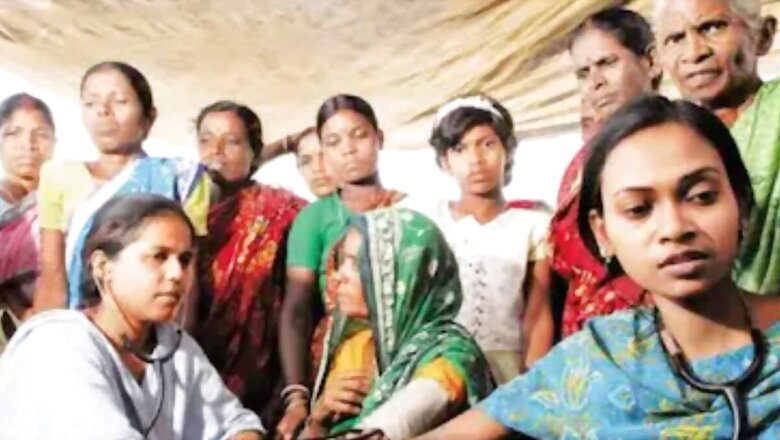
views
Healthcare in rural areas has long been a challenge in India, where access to medical facilities is limited and preventive care is almost nonexistent.
However, things are changing and for good, new initiatives have started focusing on not just treating illnesses but on creating a sustainable, comprehensive healthcare ecosystem that empowers rural families with knowledge, preventive strategies, and ongoing care.
“For far too long, healthcare in underserved areas has been reactive—focused solely on treating diseases when they occur,” says Priyadarshi Mohapatra, Founder & CEO, CureBay, a model transforming healthcare from a reactive to a proactive model.
Mohapatra adds, “But true healthcare goes beyond disease management. It’s about creating an ecosystem where people not only receive timely treatment but are also empowered with knowledge, preventive measures, and continuous support for their overall well-being.”
Addressing Rural Healthcare Challenges
Rural communities in India face a range of challenges, from limited access to healthcare services to financial constraints and a lack of awareness about preventive health measures. As Mohapatra highlights, these unique barriers require an innovative approach that blends technology with human touch. Their model integrates eClinics with on-ground Swasthya Mitras, who not only ensure timely treatment but also build lasting relationships with families to ensure continuous follow-up.
This approach moves beyond merely curing illnesses. By offering a continuum of care, the model aims to prevent diseases before they occur, improving overall health outcomes for rural populations. “Our mission is to ensure that healthcare is not dictated by geography but becomes a fundamental right for all,” shares Mohapatra.
A Holistic and Preventive Approach to Healthcare
Dr Shilpa Bhatte, MBBS, MD, Chief Program Officer, CureBay, underscores the importance of holistic healthcare in rural settings. The traditional healthcare model often focuses on symptom management without addressing the underlying causes of diseases. This is especially problematic in rural areas, where access to specialized care is limited and patients often arrive at advanced stages of illness due to delayed intervention.
“Comprehensive care focuses on earlier detection, continuous monitoring, and preventative strategies to reduce complications,” explains Dr. Bhatte. By integrating clinical expertise with education on preventive health measures, CureBay ensures that rural communities receive not just treatment, but also the tools and knowledge to prevent chronic diseases like diabetes and hypertension, as well as infections through WASH (Water, Sanitation, and Hygiene) programs and immunization drives.
Treating the Root Causes of Disease
Dr Bhatte’s approach goes beyond treating the symptoms of diseases—it aims to address the root causes, which often stem from factors like malnutrition, poor hygiene, and inadequate prenatal, maternal, and child care. Dr. Bhatte notes that many diseases in rural areas could be prevented or mitigated through proper education and preventive strategies, emphasizing the importance of addressing the underlying factors contributing to poor health outcomes.
“For rural families, we focus on treating the root cause of a disease, many of which stem from factors like malnutrition (both under and over-nutrition), poor hygiene, and limited prenatal and child care,” says Dr. Bhatte.
Ensuring Long-Term Health Through Continuous Care
One of the most critical aspects of the model is the emphasis on ongoing care. In rural communities, diseases often recur or worsen due to inadequate follow-up, poor medication adherence, or gaps in monitoring. This is where CureBay’s comprehensive healthcare model truly shines—it allows for continuous patient monitoring, ensuring that treatments are effective not just in the short term, but lead to sustainable, long-term health improvements.
“What’s most critical is providing ongoing care after the initial treatment,” says Dr. Bhatte. “A comprehensive model allows us to keep track of patients over time, ensuring that treatments lead to long-term improvements.” By offering consistent, high-quality clinical care along with health education, CureBay aims to not only treat but also prevent diseases, improving the overall health and well-being of rural populations.
This innovative approach to healthcare is redefining what it means to care for rural communities. With a focus on preventive measures, continuous care, and empowering patients with knowledge, it is creating a healthcare ecosystem that is both sustainable and effective. Healthcare in rural areas should not be limited by geography but should be a fundamental right for all, ensuring that every family, no matter how remote, has access to the care they need for a healthier, more empowered future.




















Comments
0 comment